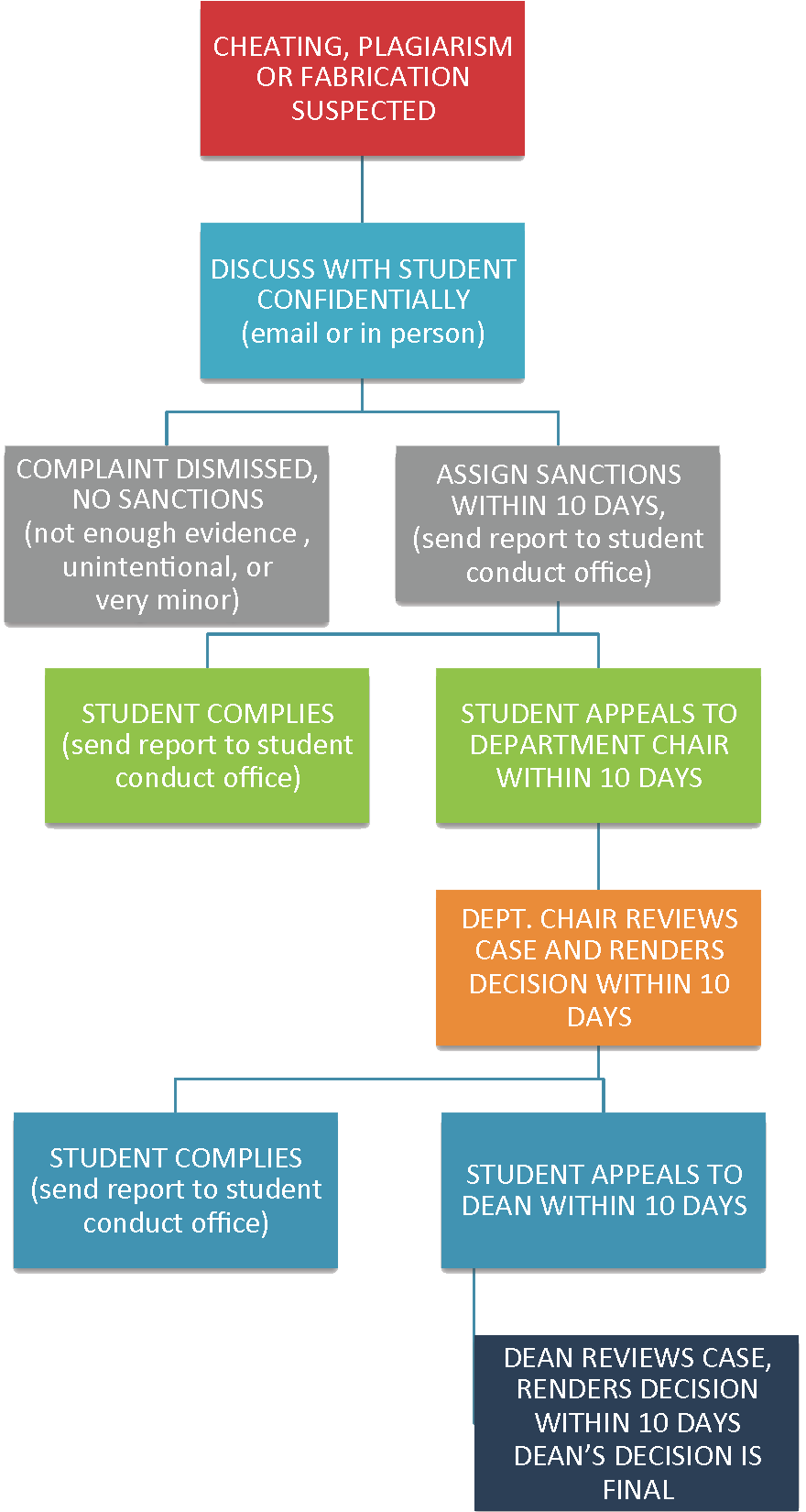Faculty have the responsibility and authority to establish expectations for their classes that students are expected to meet, and in a manner consistent with University policies. They have the right to:
If a student is unable to meet these expectations for any reason, they should make contact with faculty members as soon as possible.
While most departments have a unique approach in responding to issues of academic misconduct or classroom disruptions, the University expects all academic departments to apply fair, consistent, and commensurate actions, and to report misconduct to Student Conduct.
The Office of Student Rights & Accountability is a resource for faculty on setting classroom expectations, responding to academic misconduct or classroom disruption, and reporting options.
We are available for consultation if faculty are unsure how to respond to a particular issue.

How is AI changing college education?
Cheating is the act of using or attempting to use or providing others with unauthorized information, materials or study aids in academic work. Cheating includes, but is not limited to, passing examination answers to or taking examinations for someone else, or preparing or copying other's academic work.
Plagariasm is the act of appropriating another person's or group's ideas or work (written, computerized, artistic, etc.) or portions thereof and passing them off as the product of one's own work in any academic exercise or activity.
Fabrication is the use of invented or falsified information, research or other findings.
Faculty may not remove a student from class or deny a student access to a final exam until the student has exhausted all appeals; except in cases where a significant threat of distruption or of undermining the academic integrity of the course exists.
Unintentional plagiarism is still plagiarism
Examples of academic misconduct include, but are not limited to:
Online Plagiarism Resources
If you catch or suspect Academic Misconduct

Classroom instructors are integral in setting classroom expectations. Make sure you are setting and maintaining conduct expectations in all you interactions with students. Clearly state your classroom policies in you syllabus, including absence policies, make-up policies, grade policy, office hours, and adherence to university policies on conduct and academic integrity.
If a student poses a significant threat to others or of disruption to the class, faculty, department chairs, and deans may impose an interim suspension and have a student removed immediately from a classroom or academic area.
The removal must be reported immediately to Student Rights & Accountability (complete the online report form). This does not replace normal due process, and more permanent sanctions must then be determined. For more information, refer to the “Interim Suspension” section of the Student Code of Conduct.
Faculty should refrain from removing a student from class or denying a student access to a final exam until the student has exhausted all appeals; except in these urgent cases.
Once you catch an act of academic misconduct, discuss it with the student, and makes a final decision/sanction, it must be reported to the Office of Student Rights & Accountability according to the Student Rights and Responsibilities Code, Policy 541.
Reports can be made using the online reporting feature, or by emailing the Director of Student Conduct.
Academic misconduct records are retained one of two ways, based on faculty recommendation:
Informally
Not entered in to the student's disciplinary file. Typically, informal reports are made for first-time and/or minor offenses that do not result in grade reduction, failing grade, or removal from class. Informal records may become formal records if a student is found responsible for multiple academic infractions.
Formally
Entered in to the student's disciplinary file with the University. Formal records usually result from academic infractions that result in a failing grade, academic probation, suspension, or expulsion. Egregious violations or multiple violations will be entered as permanent records.
The Office of Student Rights & Accountability retains all records of misconduct and sanctions in order to maintain a single institutional standard for the retention of records. Records are kept in order to hold students accountable for remedying violations of the Student Rights and Responsibilities Code, and to hold administrators and faculty accountable for their disciplinary decisions.